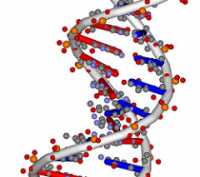
03 Jan Chronic Kidney Disease: Exome Sequencing Can Help Resolve Some Diagnostic Challenges
MedicalResearch.com Interview with:
Emily E. Groopman, B.A
Departments of Medicine
Hammer Health Sciences, and the Department of Epidemiology
Columbia University, New York
MedicalResearch.com: What is the background for this study?
Response: Exome sequencing (ES), targeted capture of the protein-coding segments of the human genome, is quickly becoming a first-line diagnostic tool in clinical medicine, particularly for pediatric disorders and cancer. However, the utility of ES has not been investigated for the majority of constitutional disorders in adults, including for chronic kidney disease (CKD), which collectively affects more than 1 in 10 individuals worldwide.
Thus, we performed ES in 3,315 patients with CKD drawn from two independent cohorts, and evaluated the diagnostic yield and the clinical implications of genetic findings. The cohort was predominantly adult (91.6% of patients aged >21 years), ethnically diverse, and encompassed the major CKD subtypes, broadly reflective of the demographic and clinical features of United States CKD patient population.
MedicalResearch.com: What are the main findings?
Response: We found diagnostic genetic variants in 307 of these 3,315 (9.3%) cases, a diagnostic yield similar to that observed for all-cause cancer, where exome sequencing is routinely used. Diagnostic variants were observed across all the major clinical disease categories, including in 17.1% of patients with CKD of unknown cause. Altogether, the genetic diagnoses spanned 66 distinct monogenic disorders, 39 (59%) of which were detected in a single patient.
On review of the 167 positive patients for whom more detailed clinical information was available, we found that, the genetic findings offered novel diagnostic insight for 122 (76%) individuals and would inform medical management for 149 (89%) patients, including informing prognosis, initiating subspecialty referral and/or influencing the choice of therapy.
In addition, we detected medically actionable mutations in 1.6% of the patients who consented for analysis of the 59 genes recommended for return of incidental findings by the American College of Medical Genetics and Genomics (ACMG). We found that these ostensibly “secondary” findings, such a predisposition to cancer or cardiomyopathy, would not only prompt outside subspecialty referral, but also impact kidney care in all cases.
MedicalResearch.com: What should readers take away from your report?
Response: Our report demonstrates that exome sequencing can help clinicians to resolve diagnostic challenges across many different clinical categories of CKD Implementation in adults with kidney disorders. Moreover, the results highlight the potential of both primary and secondary genetic findings to inform key aspects of medical management, including initiating multidisciplinary care and directing patients to disease-specific clinical trials and targeted therapies.
MedicalResearch.com: What recommendations do you have for future research as a result of this work?
Response: Our results encourage additional investigations to confirm and extend our findings in other CKD populations. We will need large-scale initiatives to address key challenges accompanying broader application of genomic sequencing, including standardized clinical interpretation of genetic findings, accessible introduction of this procedure into the standard clinical workflow and informative return results to patients. In addition to emphasizing the need for collaboration across clinical specialties, these findings support future assessment of the long-term health benefits and costs of genetic testing.
MedicalResearch.com: Is there anything else you would like to add?
Response: Genomic sequencing has the potential to empower specific diagnosis and personalized management across clinical medicine. However, it is critical for us all to keep in mind that, like other medical tests, genetic testing does not offer absolute answers, but instead provides additional information to help guide the overall impression. Thus, approaching genetic findings in each patient’s own unique clinical context is essential in achieving personalized care.
The study was supported by grants from the National Institutes of Health (1F30DK116473, to Ms. Groopman; and 1T32DK108741-01, to Dr. Nestor), the American Society of Nephrology Foundation for Kidney Research (Donald E. Wesson Research Fellowship, to Dr. Milo-Rasouly), the Columbia Institute for Genomic Medicine, and AstraZeneca. Funding for the exome sequencing in the AURORA cohort was provided by AstraZeneca. The disclosures for all the study’s authors are presented with the manuscript itself, on Diagnostic Utility of Exome Sequencing for Kidney Disease.
Citation:
Diagnostic Utility of Exome Sequencing for Kidney Disease
Emily E. Groopman, B.A., Maddalena Marasa, M.D., Sophia Cameron-Christie, Ph.D., Slavé Petrovski, Ph.D., Vimla S. Aggarwal, M.B., B.S.,Hila Milo-Rasouly, Ph.D., Yifu Li, M.D., Junying Zhang, B.S., Jordan Nestor, M.D., Priya Krithivasan, M.Sc., Wan Yee Lam, B.S., Adele Mitrotti, M.D.,et al.
December 26, 2018
DOI: 10.1056/NEJMoa1806891
[wysija_form id=”3″]
[last-modified]
The information on MedicalResearch.com is provided for educational purposes only, and is in no way intended to diagnose, cure, or treat any medical or other condition. Always seek the advice of your physician or other qualified health and ask your doctor any questions you may have regarding a medical condition. In addition to all other limitations and disclaimers in this agreement, service provider and its third party providers disclaim any liability or loss in connection with the content provided on this website.
Last Updated on January 3, 2019 by Marie Benz MD FAAD
